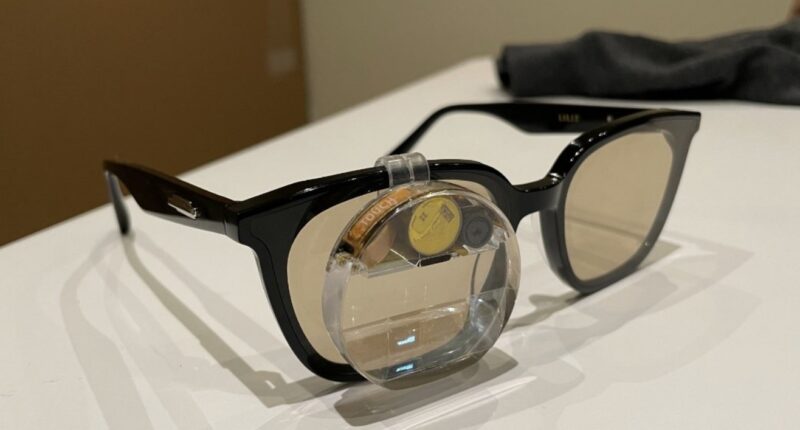AS CHATGPT pushes its way further into all of our lives, the newest rage is an AI-powered monocle that tells you what to say to people.
The DIY software listens to every conversation and feeds you lines of what to say next – hoping to give you the perfect “charisma”-infused exchange, and ChatGPT fans are going wild.
The young mastermind behind the new technology is a Stanford University student called Bryan Chiang – he called it RizzGPT or real-time Charisma as a Service (CaaS).
He enthusiastically tweeted in March: “say goodbye to awkward dates and job interviews… it listens to your conversations and tells you exactly what to say next”.
The student-created technology uses OpenAI’s GPT-4 language model, including voice recognition technology to generate questions and responses on the spot.
It then feeds this right into the monocle, where it digitally projects the words in front of the wearer, which they can read out.


It works like an interactive, highly intelligent teleprompter that clips right onto any pair of glasses. It’s got a camera, micro-phone and high-res display.
“It’s like having God observe your life and tell you exactly what to do next,” Chiang proclaimed online.
At the moment, it’s clunky and in its early stages but the creator has made a statement by cleverly combining AI with AR (Augmented Reality).
The technology and creativeness is exciting and its creator hopes that it has the potential to alter the way humans interact with one another – providing you with with the best responses to interview questions or act as your relationship guru.
Most read in Tech
In Chiang’s Twitter unveiling, he videoed a mock interview where the interviewer asks: ““I hear you’re looking for a job to teach React Native.”
The GPT-4 powered monocle then projects the response: “Thank you for your interest. I’ve been studying React Native for the past few months and I am confident that I have the skills and knowledge necessary for the job.”
Technology experts and ChatGPT enthusiasts flocked to the comments to share their excitement for his project.
One said: “oh wow this is epic”.
Another wrote: “this will be historical footage in the future”.
“This is AMAZING! Would love to know more,” offered a third.
The young tech creator simply responded: “don’t let your dreams be dreams”.
Talking about Rizz-GPT, Chiang told Motherboard: “We have to make computing more personal and it could be integrated into every facet of our life, not just like when we’re on our screens.
“Even if we’re out and about talking to friends, walking around, I feel like there’s so much more that computers can do and I don’t think people are thinking big enough.”
In April, Chiang unveiled new upgrades to Rizz-GPT – the lifeOS – which attempts to use computer vision to recognise friends’ faces.
He manually trained it on his own personal messages, photos of friends and other data.
Once it recognises his mates, it “brings up relevant details to talk about based on your texts with them (memory),” he said.
It’s still in experimental stages, but Chiang hopes one day it will be able to harness a person’s data in order to identify their mates and spark a conversation instantly so no one’s left scrambling on what to say.
During a live demo with VICE, Chiang acknowledged how much work is left to do on RizzGPT, particularly in its creativity and personalisation.
There are still awkward pauses during conversations, the monocle isn’t particularly comfortable and a lot of manual training is required to make it personal in its responses, he admitted.


However, he hopes he’s shown how generative AI can empower people’s everyday lives.
“Hopefully, by putting out these fun demos, it shows people that this is what’s possible and this is the future that we’re heading towards,” he said.
This post first appeared on Thesun.co.uk












